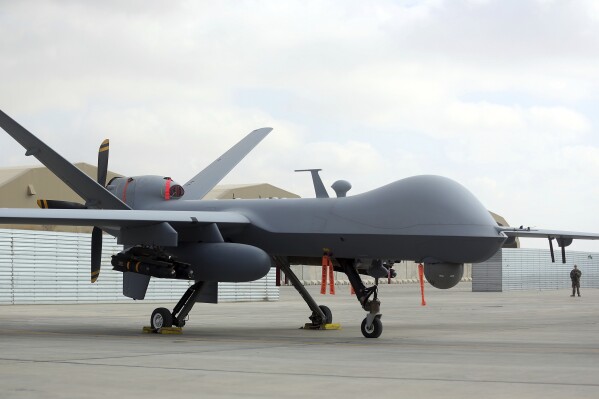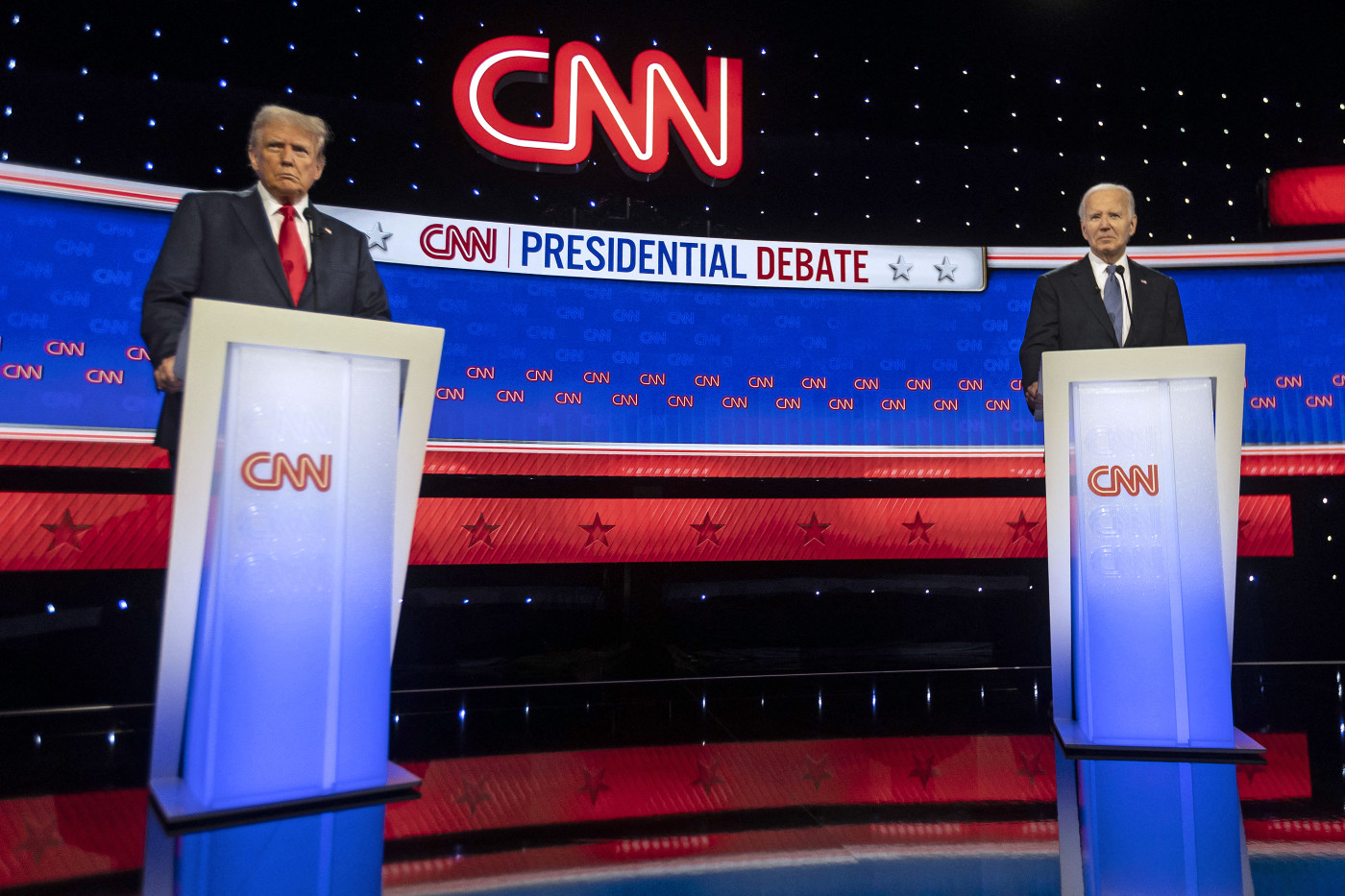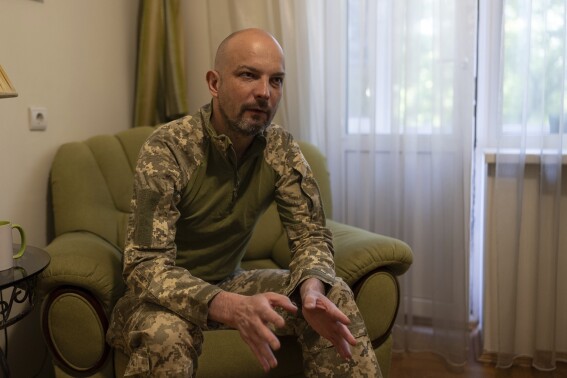What To Expect From the Upcoming NATO Summit | Opinion
On July 9-10, a few days after Americans wrap up their Independence Day celebrations, heads of state, diplomats, and dignitaries will fly to hot and humid Washington, D.C., to kick off another celebration—NATO's 75th anniversary. There will be an air of festivity in the air, akin to one big, happy family trekking over to grandma's house for her birthday bash. You can expect countless references by the participants about NATO being the oldest and most successful military alliance in world history, how the pact kept Western Europe out of the clutches of Soviet domination, and how, even at a time when the Soviet Union is long gone, it's still proving its worth.
Yet there is serious business to attend to. The war in Ukraine will be the first, second, and third priority for the two-day summit. This is both good and bad—good because the war has been Europe's biggest security issue for the last two and a half years; bad in that there is likely to be renewed tension between NATO members and a Ukrainian political leadership who is tired of hearing the same thing about potential membership over and over again.
The last time NATO had a heads of state meeting, roughly a year ago, it was clouded by a public tiff on precisely this question. Ukrainian President Volodymyr Zelensky, a man who former President Donald Trump has called "the greatest salesman of all time," was beside himself that NATO was unable to come to a consensus on when to bring Ukraine into the alliance. The so-called Vilnius Summit Communiqué was silent on the matter, only pledging that "Ukraine's future is in NATO" and that Kyiv will eventually become a member sometime in the future. This wasn't good enough for Zelensky, who railed about its "absurd" nature.
The Americans and the British didn't take too kindly to Zelensky's outbursts. U.S. National Security Adviser Jake Sullivan practically called Zelensky ungrateful (without actually uttering those words) for all the military and economic support the United States was giving Kyiv. Ben Wallace, the U.K. Defense Minister at the time, advised the Ukrainians to be a little more patient. "My counsel to the Ukrainians is sometimes: look you're persuading countries to give up their own stocks [of weapons]," Wallace said. The U.S. and U.K. don't have a warehouse full of the stuff ready to be given away.
It doesn't take a genius to understand Zelensky's frustration. His country is being mercilessly bombarded. Russian forces occupy approximately 20 percent of Ukrainian territory and have taken more land this year than Ukraine's entire 2023 counteroffensive. Russian President Vladimir Putin is as committed to the war today as he was when he first launched it—his idea for peace revolves around Ukraine withdrawing from the four oblasts (Kherson, Zaporizhzhia, Donetsk, and Luhansk) he annexed in September 2022, which shows he isn't exactly desperate to make a real peace deal right now. Ukrainian troops, fighting non-stop for 28 straight months, are tired and wondering whether the politicians back in Kyiv will ever authorize a mobilization campaign so they can get some rest. Things aren't falling apart for Ukraine but they aren't great either.
Zelensky, of course, knows all of this. His job is to protect his country from what can legitimately be called Putin's war of conquest. He is going to do everything he can to keep the West's military aid spigot flowing and will use all his powers of persuasion to bring Ukraine into a military alliance upheld by the weight of a superpower. You can't fault Zelensky for doing this.
The fault, rather, lies with NATO—not because it hasn't inducted Ukraine into the alliance yet but because its leaders, up to and including President Joe Biden, outgoing NATO Secretary General Jens Stoltenberg, and French President Emmanuel Macron, keep saying one thing and doing another. They insist time and again that the decision about NATO membership has already been made, de-facto, and that timing is the sole issue.
Despite all the pro-forma statements about keeping NATO's door open to new members, it should be abundantly clear by now that the alliance doesn't want Ukraine in the club.
NATO members are perfectly fine sending cash and all sorts of weapons to the Ukrainians so they can bleed the Russian army, which after all is NATO's primary adversary. But their actions to date have demonstrated that direct conflict with a nuclear-armed Russia on behalf of Ukraine is not in the cards. When former U.S. generals called for a no-fly zone in Ukraine during the war's first few weeks, NATO rejected it as an unrealistic option since it would require NATO planes to shoot down Russian aircraft and missiles. When Macron suggested in February that Western troops could be deployed to Ukraine, the Americans, Poles, and Germans distanced themselves all but dismissed the rhetoric. About a month after he retired as secretary general, Stoltenberg told The Economist that as important as it was to provide Ukraine with the ability to win the war, it was also important for NATO to "prevent this war becoming a full-fledged war between Russia and NATO in Europe."
Ukraine has been waiting on NATO membership for a long time. It will continue to wait, likely in perpetuity, regardless of the sweet-nothings Western leaders whisper in Zelensky's ear.
Daniel R. DePetris is a fellow at Defense Priorities and a syndicated foreign affairs columnist at the Chicago Tribune.
The views expressed in this article are the writer's own.
Disclaimer: The copyright of this article belongs to the original author. Reposting this article is solely for the purpose of information dissemination and does not constitute any investment advice. If there is any infringement, please contact us immediately. We will make corrections or deletions as necessary. Thank you.



